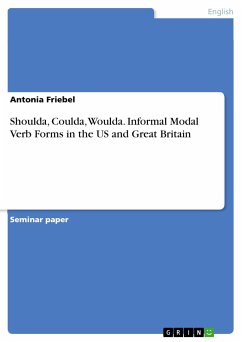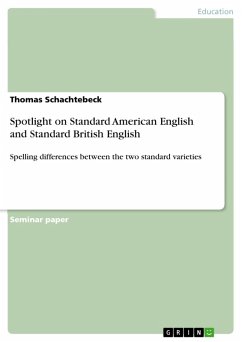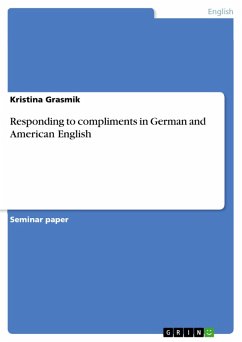Seminar paper from the year 2016 in the subject English Language and Literature Studies - Linguistics, grade: 1,0, Johannes Gutenberg University Mainz (Department of English and Linguistics), course: English Today and Tomorrow, language: English, abstract: This empirical study will focus on the usage of accents of English Teachers in a German school in the context of second language acquisition. It becomes apparent that this theme could fill entire books due to its complexity. For this reason, the topic of research is limited to the perception of English teachers towards accents in one school in Germany. It will be examined, if British English accents are still the most spread among English teachers in German schools. After discussing the theoretical background, the method of the present study will be presented. Subsequently, the results of the evaluation of the questionnaire will be shown and finally discussed, together with the contribution to attitudinal research as well as practical implications for teachers. Nowadays, we are progressively diverging from one Standard English and therefore one standard accent to a more widespread variety of accents. Same goes for second language learners, as they adapt to these varieties. In Germany, English is taught in school as a second language beginning at the age of nine or ten. Due to a mixture of native and non-native speakers from all over the world, all teachers have their personal accent they employ in class. However, a few years ago, British English (English English) was still seen as the most favorable language to use in class. Because of its actuality, several studies have already been realized. As an example, it has been revealed that British English does no longer receive the highest ratings and that the American accent is emerging, while Received Pronunciation (R.P.) still scored highest in Giles' study in 1970. Regarding the context of school, the teachers' consciousness and attitudes towards accents have been examined. In order to also take a look at the other side of the coin, Alford and Strother (1990) have concentrated on non-native speakers' reactions to different accents. For comparison purposes, Major et al. (2002) also focused on the effects of learning from native or non-native teachers.
Dieser Download kann aus rechtlichen Gründen nur mit Rechnungsadresse in A, B, BG, CY, CZ, D, DK, EW, E, FIN, F, GR, HR, H, IRL, I, LT, L, LR, M, NL, PL, P, R, S, SLO, SK ausgeliefert werden.









